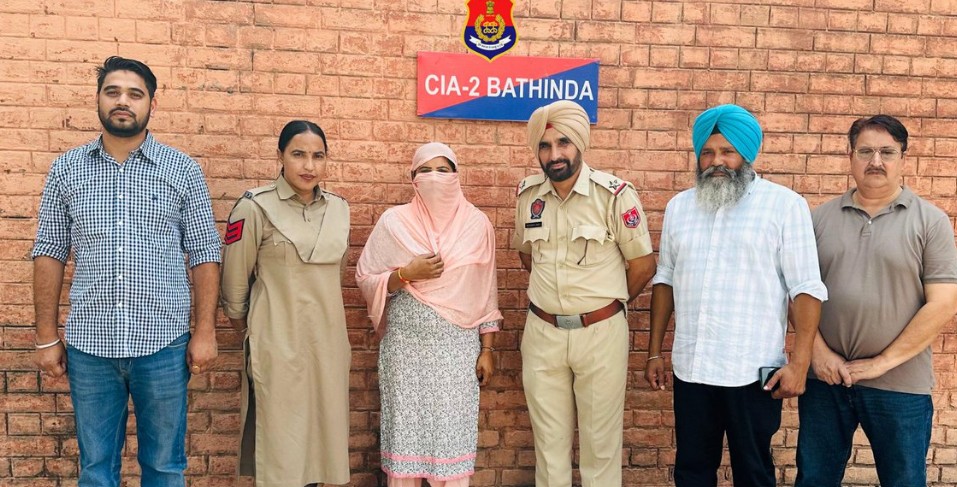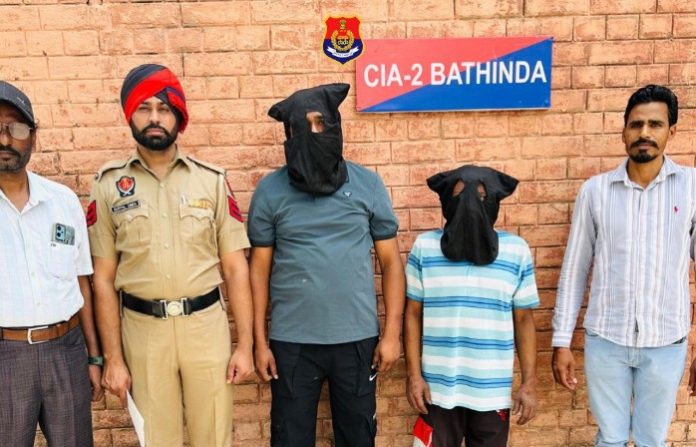In an unwavering and relentless offensive against a scourge that has plagued its social fabric for far too long, the Punjab Police has intensified its anti-drug campaign, employing stringent measures and decisive action across every corner of the state. This assertive stance, unequivocally backed by the Bhagwant Mann-led government, represents a critical phase in Punjab’s enduring battle against narcotics, aiming to dismantle the entire drug ecosystem from peddlers on the streets to kingpins operating transnational smuggling networks. The call for “strict police action” is not merely a slogan; it is a palpable operational directive, manifesting in widespread arrests, significant seizures, and a systemic overhaul of law enforcement’s approach.
Punjab’s vulnerability to the drug menace is a complex narrative, rooted in its geographical proximity to major drug-producing regions, particularly the infamous Golden Crescent, facilitating cross-border smuggling from Pakistan. This insidious trade has seeped into communities, devastating lives, eroding public health, and fostering a climate of despair among a generation. Recognizing the gravity of this crisis, Chief Minister Bhagwant Mann has repeatedly affirmed his government’s zero-tolerance policy, setting ambitious deadlines for the police force to make Punjab a drug-free state. The recent momentum in police action is a direct consequence of these directives, signaling a new, uncompromising phase in the “Yudh Nashian Virudh” (War Against Drugs) campaign.
Under the direct supervision of Director General of Police (DGP) Gaurav Yadav and Special DGP (Law and Order) Arpit Shukla, the Punjab Police is orchestrating a multi-pronged strategy that goes far beyond routine arrests. A core component of this strict action involves intelligence-led operations, meticulously gathering information on drug networks, their supply lines, and financial conduits. This intelligence is then translated into large-scale, coordinated raids, often conducted simultaneously across all 28 police districts of the state. Recent operations, including “OPS SEAL-XIII” and sustained efforts over the past 85 days of the anti-drug war, have yielded significant results, with hundreds of drug smugglers apprehended and substantial quantities of heroin, poppy husk, and other illicit substances seized. For instance, recent reports highlight the arrest of over 101 smugglers and the seizure of 15.9 kg of heroin in a single day’s operation, alongside larger busts like the 85 kg heroin seizure from an ISI-controlled Pakistan-based narco-smuggling module.

The “strictness” of police action is also evident in the aggressive pursuit of financial investigations against drug traffickers. The focus has expanded beyond merely seizing drugs to tracing and freezing assets acquired through illegal drug money. This includes the strategic demolition of illegally constructed properties belonging to drug smugglers, a visible and impactful deterrent demonstrating the government’s resolve to hit kingpins where it hurts most – their ill-gotten wealth. The Chief Minister himself has emphasized that the “bulldozer drive” against drug-related properties will continue relentlessly, ensuring that the ill-gotten gains of the drug trade are dismantled as per the law. This approach aims to break the financial backbone of these criminal enterprises, rendering their operations unviable.
Another critical measure involves stringent border control and inter-state coordination. Given Punjab’s extensive border with Pakistan, which has increasingly become a route for drone-assisted drug smuggling, the police are deploying advanced anti-drone systems and strengthening surveillance. Operations like “OPS SEAL-XIII” specifically target entry and exit points across inter-state border districts, involving thousands of police personnel to intercept drug traffickers and bootleggers. Furthermore, collaboration with law enforcement agencies in neighboring states is crucial to disrupt inter-state drug trafficking rings, ensuring that peddlers cannot simply cross administrative boundaries to evade capture.
The challenges faced by the police in this intensified campaign are formidable. The sheer scale of the drug problem, the sophisticated methods employed by cross-border smugglers, and the deeply entrenched networks of local peddlers demand unwavering vigilance and continuous adaptation. The problem of maintaining evidence chains, securing convictions, and navigating the complexities of the Narcotic Drugs and Psychotropic Substances (NDPS) Act requires highly trained personnel and dedicated legal support. Moreover, while strict enforcement is paramount, the police also play a role in facilitating the rehabilitation of drug victims, motivating individuals to seek de-addiction treatment – a crucial aspect of the state’s comprehensive three-pronged strategy of Enforcement, De-addiction, and Prevention (EDP).
The impact of this strict police action is beginning to resonate across Punjab. The consistent arrests and seizures are disrupting supply lines, making drugs harder to obtain and potentially driving up their street prices, which can act as a disincentive for new users. More importantly, these actions are gradually restoring public confidence in law enforcement. For years, there was a perception of impunity for drug peddlers, sometimes fueled by allegations of nexus within the system. The current government’s direct directives, coupled with the police force’s visible crackdown, are working to dispel these perceptions. Citizens are encouraged to come forward with information, with helplines like 112 becoming vital channels for reporting drug-related activities, ensuring confidentiality.
Chief Minister Bhagwant Mann has consistently reiterated that this “war against drugs” is a fight for Punjab’s future generations and requires mass public movement. He has called upon citizens to extend their wholehearted support, transforming this law enforcement drive into a collective societal responsibility. The active involvement of community leaders, educational institutions, and civil society organizations is deemed essential to sustain the momentum generated by police action, focusing on prevention and awareness, particularly among the youth. The government’s determination to root out corruption within its own ranks, exemplified by mass transfers of police personnel where nexus allegations existed, further bolsters the credibility of the entire campaign.
Looking ahead, the long-term vision for a drug-free Punjab transcends mere arrests and seizures. The strict police action is viewed as the initial, critical phase—a necessary shock to the system to dismantle the supply chain and instill fear among traffickers. This must be followed by sustained efforts in de-addiction and prevention. The establishment of dedicated anti-narcotics task forces, plans for special courts to fast-track drug-related cases, and rigorous monitoring of de-addiction centers are all part of this holistic strategy. The police’s role extends to ensuring that cases are not only registered but also meticulously investigated, leading to successful convictions that serve as powerful deterrents.
In conclusion, the “strict police action” under the anti-drug campaign in Punjab signifies an uncompromising battle against a deeply entrenched menace. Led by a resolute government and a committed police force, this intense crackdown involves widespread raids, significant seizures, financial investigations, and a strategic focus on breaking supply chains, particularly those originating from across the border. While challenges persist, the visible impact on drug networks and the gradual restoration of public confidence underscore the effectiveness of this assertive approach. This campaign is not merely about law enforcement; it is about reclaiming Punjab’s future, safeguarding its youth, and building a healthier, drug-free society, one determined step at a time. The continuous pressure exerted by the police is a foundational element in this monumental societal transformation. Sources


